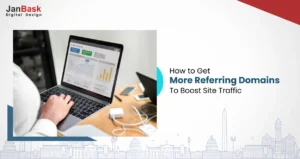
If you own a website, it must appear on Google. After all, Google is the world's most popular search engine, and it's where most people go to get information online. However, if your website does not appear in Google, it may be frustrating and perplexing.
If your website needs to show up on Google or experience better rankings, it's essential to take proactive steps to fix the underlying issues. This blog post will explore common factors that may prevent your website from appearing on Google search results and provide actionable solutions to improve your search presence. Implementing these strategies can enhance your website's visibility and attract more relevant traffic. This article will also help you choose the right SEO company, SEO services, and SEO agency to help build your website content.

Looking for professional SEO Services?
In today's digital age, having your website appear on Google is crucial for online visibility and reaching your target audience. However, if you've noticed that your site needs to appear in Google's search results, it can be frustrating and leave you wondering why. If you are wondering “Why my website is not showing on Google search?”, this article might be of help. In this article, we will explore the most common reasons to answer your query on “Why my website is not showing on Google?” and provide you with valuable insights on how to address these issues. Understanding and resolving these factors can improve your website's rankings and attract the desired organic traffic. Let's delve into the key reasons and discover the solutions to help you gain the online visibility you deserve on the website not appearing in Google searches.
Search engine bots search the web, analyzing and categorizing web pages, making them visible in search results. Thus, a new website may surface in search engine results only after some time, especially on Google. However, you can assist in speeding up the process by incorporating relevant keywords, meta tags, and descriptive titles. Submitting your website's sitemap to Google Search Console can expedite indexing.
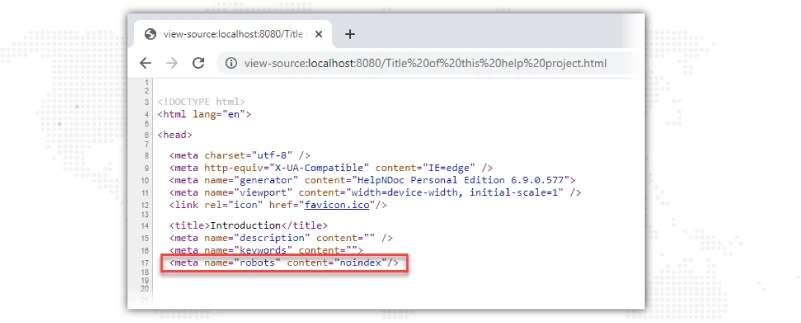
Review your website's robots.txt file and ensure it doesn't contain directives that block search engine crawlers. Some website owners inadvertently add "no index” to their pages, instructing search engines not to index them. This can prevent your website from showing up in Google's search results. Check individual page settings to ensure the "no index" tag is absent.
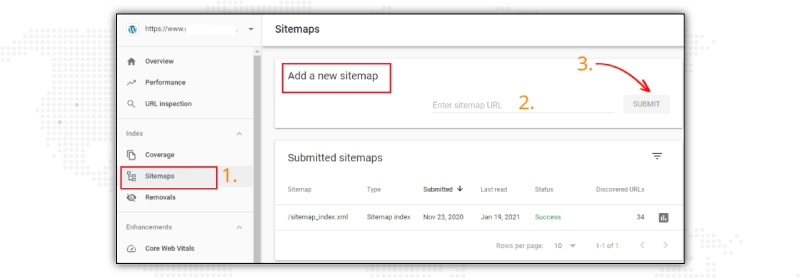
If Google is not crawling your website, it won't be able to index and display your content in search results. This could be one of the reasons why the website not showing on Google. To encourage Google's crawlers to visit your site, ensure that your website has a clean and crawlable site structure. Submitting an XML sitemap to Google Search Console can also help notify Google about your website's existence and structure, encouraging regular crawling as well as answer your query “Why my website does not appear in Google search?” to a certain extend.
If your website has violated Google's quality guidelines or engaged in manipulative SEO practices, it may receive a penalty, causing it to lose visibility in search results. Conduct a thorough review of your website's content, backlink profile, and technical aspects to identify any potential issues. If you suspect a penalty, submit a reconsideration request through Google Search Console and address the problems identified to lift the penalty.
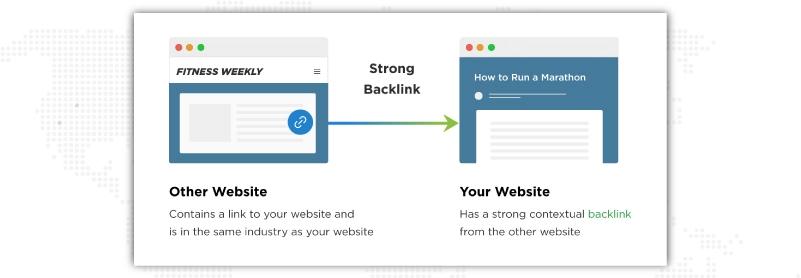
Backlinks are links to your website from other websites. They signal to search engines, showing your website's authenticity, relevancy, and authority. Google and other search engines use backlinks to determine a website's reputation and popularity. The lack of high-quality backlinks might be a significant reason your website does not appear prominently in Google search results.
Google's algorithms strive to provide consumers with the most relevant and trustworthy material, and backlinks are essential in determining a website's quality and credibility. A website with few low-quality backlinks may need to rank better in search results. Building high-quality backlinks from credible sites within your business or specialty is critical for increasing the visibility of your website. Engaging in content marketing, guest blogging, social media promotion, and developing partnerships with reputable websites may help you obtain valuable backlinks and boost your website's rating on Google.
If your website targets highly competitive keywords, it can be challenging to rank well. Conduct keyword research to identify relevant keywords with lower competition. Long-tail and local keywords can effectively drive targeted traffic while facing less competition. Optimize content around these keywords to improve your chances of ranking. If you find it difficult to optimize your website with the right keyword, you can always get in touch with a professional SEO company to get all your search engine optimization services done.
User experience is a crucial factor in search engine rankings. If your website has slow loading times, poor mobile optimization, or a confusing navigation structure, it can negatively impact your rankings. Optimize your website for speed, ensure it is mobile-friendly, and improve usability and navigation. PAseamless and engaging user experience will improve your search presence and enhance user satisfaction and conversion rates.
Now that we have identified the key reasons why your website is not showing up on Google and have answered a part of the question “why my website not showing in Google search?,” let's explore some actionable steps you can take to improve your search presence:
Start by conducting a thorough SEO audit of your website. This involves assessing site structure, metadata, on-page optimization, URL structure, and overall website performance. Identify any areas that need improvement and create a plan to address them.

Pay attention to your website's on-page elements, including title tags, meta descriptions, headers, and content. Ensure they are optimized with relevant keywords, compelling descriptions, and clear headings. This helps search engines understand the content and relevance of your web pages.
Content is king when it comes to search engine optimization. Develop a content strategy that creates high-quality, informative, and engaging content relevant to your target audience. Incorporate relevant keywords naturally within your content while providing value to your readers.
Backlinks are crucial for improving your website's authority and visibility. Focus on building high-quality backlinks from reputable websites in your industry. This can be achieved through guest blogging, outreach to influencers, participating in industry forums, and creating shareable content that naturally attracts links.
Page load speed is an essential factor in user experience and search rankings. A fast-loading website improves user experience and increases the likelihood of search engines crawling and indexing your pages. Optimize your website's performance by compressing images, leveraging browser caching, and minimizing server response time.
With the increasing use of mobile devices, having a mobile-friendly website is essential. Optimize your website for mobile devices by using responsive design techniques, ensuring that your site adapts seamlessly to different screen sizes. Google prioritizes mobile-friendly websites in its search results, so this step is crucial for improving your search presence.
While social media signals do not directly impact search rankings, they can indirectly influence your website's visibility. Use social media platforms to promote your content, engage with your audience, and generate shares and mentions. Increased social media activity can lead to more traffic to your website, increasing its visibility to search engines.
Regularly monitor your website's performance using tools like Google Analytics and Google Search Console. These tools provide valuable insights into your website's traffic, rankings, and user behavior. Analyze the data to identify trends, discover improvement opportunities, and track your SEO efforts' effectiveness.
By implementing these strategies and consistently optimizing your website, you can improve your search presence and increase your website's visibility on Google. Remember, SEO is an ongoing process, so stay updated with the latest algorithm changes, adapt your strategies accordingly, and continuously refine your website to stay ahead of the competition.
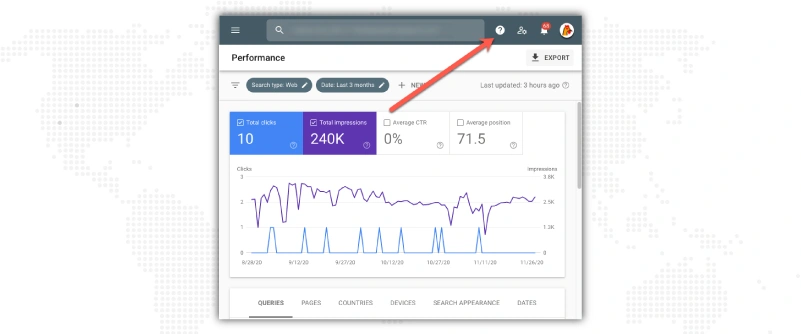
Google's Search Console is a powerful tool that provides invaluable insights into the performance of your website in Google's search results. By leveraging this tool effectively, you can identify issues, optimize your site, and improve your overall search presence. This article will provide an insider's guide to using Google's Search Console to fix your site. We'll explore its key features, explain how to interpret the data it provides and offer actionable tips backed by statistics and reliable data. Let's dive in!
Google's Search Console offers performance reports that provide essential data on how your website is performing in search results. Dive into these reports to gain insights into the search queries that drive traffic to your site, the pages that receive the most clicks, and the average position of your site in search results. Analyze this data to identify opportunities for improvement and optimize your content accordingly.
Did you know? According to a study by Backlinko, the first organic search result on Google receives an average click-through rate (CTR) of 31.7%, while the second and third results receive CTRs of 24.71% and 18.66%, respectively. Understanding your site's average position can help you gauge its visibility and work towards achieving higher rankings.
The Index Coverage report in Google Search Console helps you identify any issues indexing your site's pages. It provides a detailed overview of which pages are indexed, which ones are not, and any errors or warnings encountered during the indexing process. Addressing these issues promptly ensures that your site's pages are correctly indexed, leading to better visibility in search results.
Statistics show that indexing errors can significantly impact your site's visibility. According to a study by SEMrush, websites with indexability issues experienced a 50% decrease in organic search traffic compared to those without any problems. Fixing indexing issues can have a direct positive impact on your site's search visibility and organic traffic.
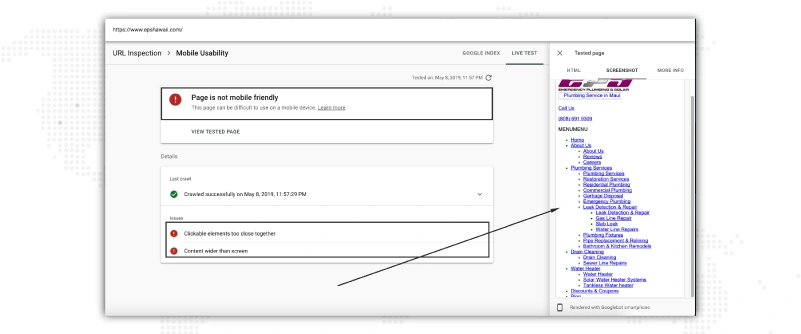
The URL Inspection tool allows you to analyze individual pages of your website and understand how Google sees and processes them. It provides information on indexing status, mobile-friendliness, and any errors or issues encountered. By regularly inspecting critical pages, you can ensure they are correctly optimized and free from mistakes that may hinder their visibility.
According to Google's research, mobile-friendly websites are more likely to convert visitors into customers. They found that 61% of users are unlikely to return to a mobile site they needed help accessing, while 40% will visit a competitor's site instead. Using the URL Inspection tool to ensure mobile-friendliness can significantly improve user experience and increase engagement on your site. Studies have also shown that page load speed is directly linked to user satisfaction and conversion rates. According to Google, as page load time increases from one second to three seconds, the probability of a user bouncing increases by 32%.
Google's Core Web Vitals are essential metrics that assess user experience factors such as page loading speed, interactivity, and visual stability. These metrics play a crucial role in determining how Google ranks your site. The Search Console provides insights into your site's Core Web Vitals performance, helping you identify areas for improvement and optimize your website, leading to better user experience, higher rankings, and increased engagement on your site.
Google's Search Console is an invaluable resource for web admins and site owners, providing key insights and data to optimize and fix issues on your website. By harnessing the power of performance reports, uncovering indexing issues, leveraging the URL Inspection tool, and optimizing Core Web Vitals, you can take proactive steps to improve your site's search performance.
So, whether you're a seasoned webmaster or a beginner in the world of SEO, make sure to leverage the features of Google's Search Console to gain a competitive edge. Stay updated with the latest algorithm changes, monitor your site's performance, and implement optimizations based on the insights provided.
Achieving visibility on Google's search results is a continuous effort that requires a combination of technical optimization, high-quality content, and a user-friendly experience. Addressing why your website isn't showing up on Google and implementing the suggested solutions can increase your chances of ranking higher and attracting organic traffic.
Remember to regularly monitor your website's performance using tools like Google Search Console, analyze user behavior through analytics platforms, and stay updated with the latest SEO best practices. By consistently refining your website and optimizing for search engines, you can establish a solid online presence and drive targeted traffic to your site.
By identifying why your website isn't showing up on Google and taking action to address them, you can significantly improve your search presence and increase visibility to your target audience. Remember to adapt your SEO strategies based on the latest industry trends and algorithm updates to stay competitive in the dynamic digital landscape.
If you are wondering why my website is not showing up on Google, then you might need to take proactive steps to fix it. If you need professional assistance optimizing your website's visibility on Google, our experienced team at Janbask is here to help. With years of expertise in Google SEO services, our SEO experts can provide tailored solutions to enhance your website's search rankings and drive organic traffic. Don't let your website go unnoticed on Google—reach out to us today for all Google SEO services and unlock the full potential of your online presence.
Interested in our Google SEO Services?

1. What is SEO, and why is it essential for my website?
SEO stands for search engine optimization, which involves optimizing your website to rank higher on search engine results pages. It is essential because higher rankings lead to increased visibility, organic traffic, and potential customers for your business.
2. Can I improve my website's search presence without technical knowledge?
While having technical knowledge can be helpful, there are many SEO resources and tools available that can guide you through the process of optimizing your website. Additionally, working with professional SEO services or agencies can provide expert assistance in improving your website's search presence.
3. How long does it take to see improvements in search rankings?
A3: The time it takes to see improvements in search rankings can vary based on various factors such as website age, competition, and the implementation of SEO strategies. Generally, it takes several weeks to a few months to observe noticeable improvements.
4. Can social media impact my website's search presence?
While social media signals do not directly impact search rankings, they can indirectly influence your website's visibility. Social media platforms can drive traffic, increase brand exposure, and generate backlinks, positively impacting your overall search presence.
5. Is it worth investing in professional SEO services?
Investing in professional SEO services can be beneficial, especially if you need more time, resources, or expertise to optimize your website effectively. Professional SEO services can provide comprehensive strategies, technical optimizations, and ongoing monitoring to improve your website's search presence.
S
This article provides a comprehensive guide to understanding and resolving issues with website visibility on Google.
P
I struggled with my website’s visibility on Google, but this article gave me the needed insight and solutions
L
The importance of Google’s Search Console in fixing site issues cannot be overstated. This article does an excellent job of explaining its features and providing step-by-step guidance.
J
I appreciate how this article emphasizes the significance of user experience and its impact on search rankings.
C
As a website owner, I found this article to be a valuable resource. The explanations were clear, and the inclusion of relevant statistics added credibility.